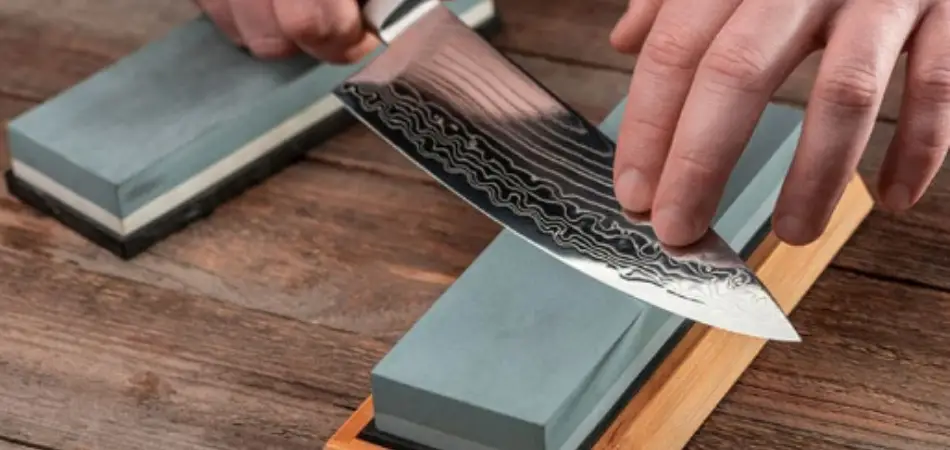Damascus steel is not nearly as impervious to rust as some would have you believe. Any knife or cutlery made from Damascus steel requires the same basic care as other metal knives; for instance, it must be washed, rinsed, and dried promptly after use. However, does Damascus steel rust?
Yes, Damascus steel does rust. Every form of Damascus steel, especially those high in carbon, is very prone to rust. This should not scare you, though, because Damascus steel is very easy to care for and maintain.
The major occurrence that causes Damascus steel to rust is moisture. Rust is an oxide of iron, and Damascus steel can undergo this process. As a rule of thumb, do not leave the blade of your knives or any product made from Damascus steel wet for too long as it causes it to oxidize and rust quickly.
This article will learn more about Damascus steel, why it is prone to rust, and how to prevent it from getting rusty.
Contents
What is Damascus Steel?
Damascus steel is also known as pattern welded steel. It is usually made up of two or more dissimilar alloys of steel.
The two most common ones are 1084 and 15n20. These are both high carbon steels, although the latter contains a high amount of nickel. To produce Damascus steel, the two sheets of steel are forged-welded together into a single strong bar and then altered to produce patterns in several layers. After the forged blade has been grounded to its finished shape, the material looks moderately similar to non-patterned steel, which is shiny silver.
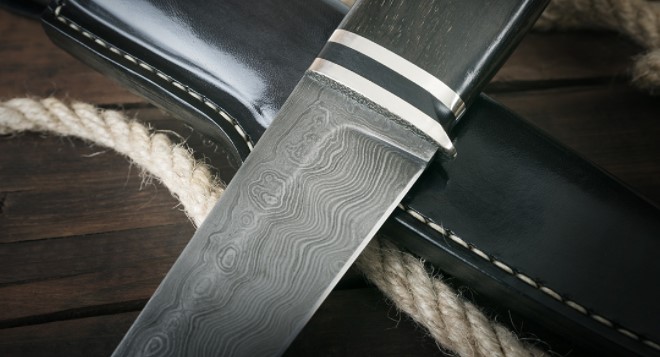
After this, the blade becomes polished and etched in an acid bath so that the pattern can reveal itself. The acid does this by attacking the steel and oxidizing the iron which makes up most parts of the material. This process leaves a layer of black iron oxide. Nickel however resists this attack and remains bright.
How Easily Does Damascus Steel Rust?
Damascus steel rusts easily especially if exposed to water, or moisture content for too long. Many hand-forged Damascus steel materials are made out of alloys with high carbon steel and little amounts of chromium present. As a result of the carbon present, the blades can rust easily if not cared for.
Ensure your blades are kept clean and dry in order to avoid rust.
What Is The Difference Between Damascus Steel And Stainless Steel?
There are lots of differences between Damascus steel and stainless steel. Let’s take a look at the major ones.
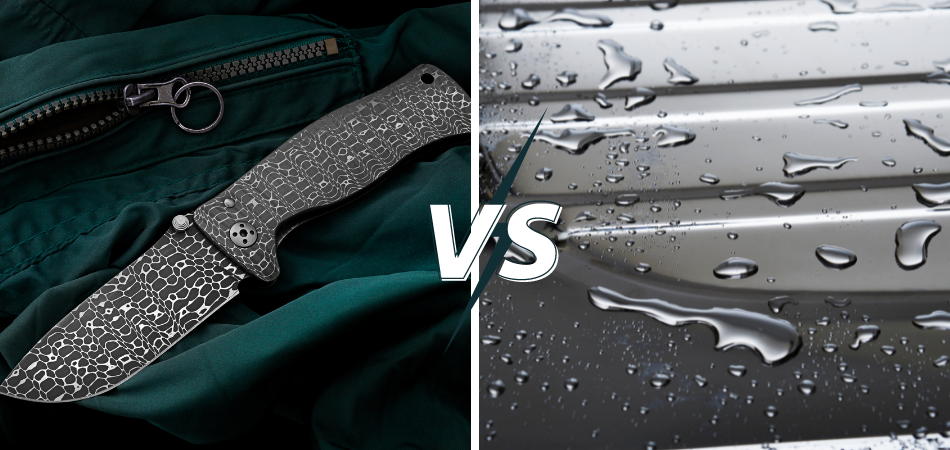
Resistance To Corrosion
Stainless steel contains at least 10.5% of chromium. As a result of this, it is resistant to corrosion.
The chromium present in the steel reacts with the oxygen present in the air to form an invisible layer of chromium oxide, which, in turn, offers the steel a high degree of protection. Chromium is also self-healing. This means that when the metal gets scratched or becomes dented by an object, it reacts with oxygen to form another layer to protect the steel.
The resistance of stainless steel can also be further strengthened by adding nickel, or copper. Damascus steel however corrodes easily due to its low chromium content.
Physical Outlook
A major difference between stainless steel and Damascus steel is their outward appearance. Although stainless steel looks simply plain on the surface, Damascus steel has a unique wavy or watery pattern which forms as a result of how the steel has been forged.
A simple multilayered blade of Damascus steel usually has about three layers of steel. The strongest layer is the hard steel which is present at the core sandwiched between two soft steel layers, with the hardcore only exposed at the cutting edge. The soft layers make the steel durable while the hardcore layer provides a sharp, long-lasting edge.
When many layers of steel are heated and cooled alternately, they twist and fold. The final lengthening, hammering and flattening of steel reveal these patterns.
Versatility
While stainless steel can be used to produce several stainless objects, Damascus steel can only be utilized in the manufacturing of knives. This is a result of the number of alloys used in their manufacturing processes.
Is Damascus Steel Waterproof?
No. Although Damascus steel is highly water-resistant, it is not waterproof. Waterproof is the ability of an object to remain the same and not be damaged by water at all. While water resistance is the ability of an object to resist the effect of water for a given period before it begins to react to water.
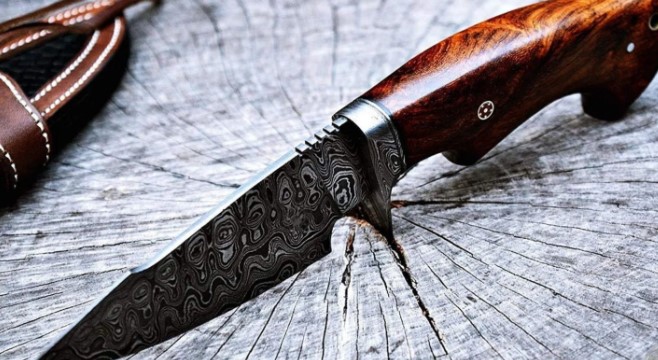
Most metal ring materials like gold, BZ, cobalt chrome, platinum, Damascus steel, tantalum and carbon fiber can handle water as well. However, Damascus steel reacts to water and begins to rust over time.
How to Care for Damascus Steel?
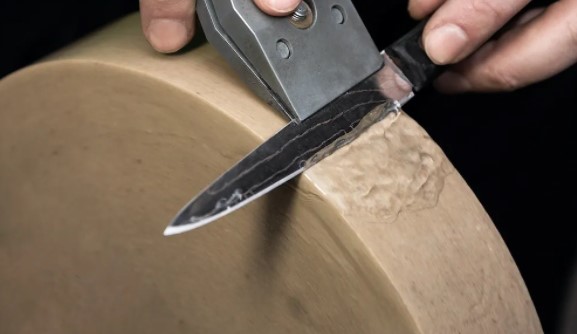
Lubricate: After cleaning and denying your Damascus steel, you should lubricate it with wax to prevent moisture or water content from affecting the blade. Wax will help your Damascus steel stay rust-free and maintain its etched beauty.
Be Watchful: Damascus steel is more vulnerable to damage when used on acidic foods, (for example, fruits) in wet or humid environments, and for field dressing games. Instead, use a knife made out of pure stainless steel as the acid content of these materials will cause it to rust quickly.
Avoid Abrasives: Avoid using abrasives to clean your Damascus steel. Instead, use rough cloths, steel wool, or metal polishes to maintain the look of your Damascus steel. Using abrasives will remove oxidation and destroy the pattern of the steel.
Store Properly: When not in use, keep your Damascus steel in a dry environment. Ensure it is not in contact with water or moisture and it is safe and dry.
Conclusion
Damascus steel does rust. The carbon content present in the steel causes oxidation which results in rusting. To prevent this from occurring, keep your Damascus steel away from moisture and ensure it is safe and dry.

